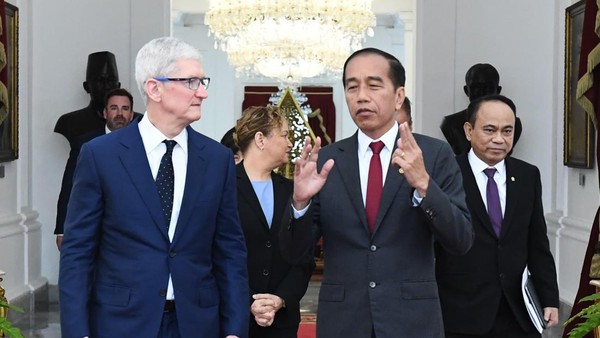BANDUNG, SEATIZENS – Indonesia has blocked the sale of the iPhone 16 due to Apple’s failure to meet its investment commitment of IDR 1.71 trillion (about $113 million) for its TKDN (Domestic Content Level) certification.
This certification is essential for selling mobile devices in Indonesia. With its expiration, Apple faces significant challenges.
Minister of Industry Agus Gumiwang Kartasasmita revealed that Apple’s TKDN certification has lapsed. Currently, the company has invested IDR 1.48 trillion, falling short by IDR 240 billion (around $15 million).
This shortfall raises concerns for the Indonesian government, which wants international firms to contribute to the local economy.
Instead of addressing this issue, Apple has requested a 50-year tax exemption. The government has rejected this request, wary of granting long-term tax breaks to multinationals without clear commitments to local investments.
Indonesia: A Key Market for Apple

Indonesia is a vital market for Apple, as it is the largest smartphone market for the company in Southeast Asia. With around 280 million people, Indonesia has about 13 million iPhone users.
In contrast, India, with a population of 1.4 billion, has only 17 million iPhone users. Despite this potential, most of Apple’s factories are in China, where it operates 151 factories.
The company also has 41 factories in Taiwan, 25 in Vietnam, and 14 in India. Notably, there are no Apple factories in Indonesia.
In contrast, other major brands such as Samsung, Huawei, Lenovo, and Oppo have opened factories in Indonesia. Together, they produce nearly 50 million mobile devices annually in the country.
Additionally, Indonesia imports about 2.8 million mobile phones each year, with a staggering 85% of those being Apple products. This results in approximately $2 billion (or IDR 31.6 trillion) in imports.
Apple’s investment in Indonesia is only IDR 1.48 trillion. This amount is significantly lower than its investment in Vietnam, which stands at IDR 256 trillion.
Moreover, Apple has allocated around IDR 4 trillion for investments in Singapore, a nation with only 6 million residents.
Public Criticism and Economic Concerns
Apple’s lack of factories or official stores in Indonesia has led many to question its commitment to the local economy.
Critics argue that Apple primarily views Indonesia as a market for its products while centralizing manufacturing in Vietnam and Singapore. This approach allows Apple to benefit from Indonesia’s consumer market without making a significant contribution to local job creation or economic growth.

As public scrutiny increases, there is a growing sentiment that multinationals should contribute to the markets they enter.
This situation has sparked discussions on encouraging foreign companies to invest more substantially in local industries. Such investments could benefit the local economy in meaningful ways.
Read Also : Harga Bitcoin Sentuh Rekor Baru di Tengah Kemenangan Donald Trump
The dispute between the Indonesian government and Apple over the iPhone 16 highlights a broader theme of economic responsibility and local investment.
As Indonesia develops its digital economy, the demand for a balanced relationship between multinational corporations and local markets will intensify.
How Apple navigates this critical moment may have lasting effects on its reputation and market position in one of Southeast Asia’s largest economies.
(Firyal Trinidad)




